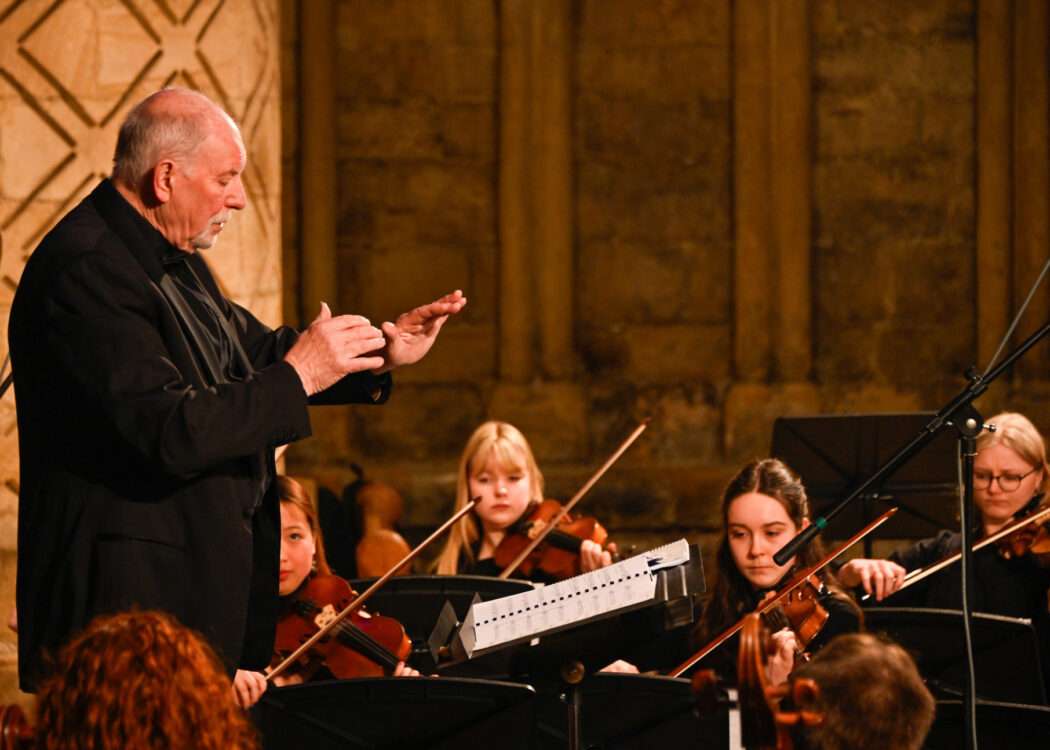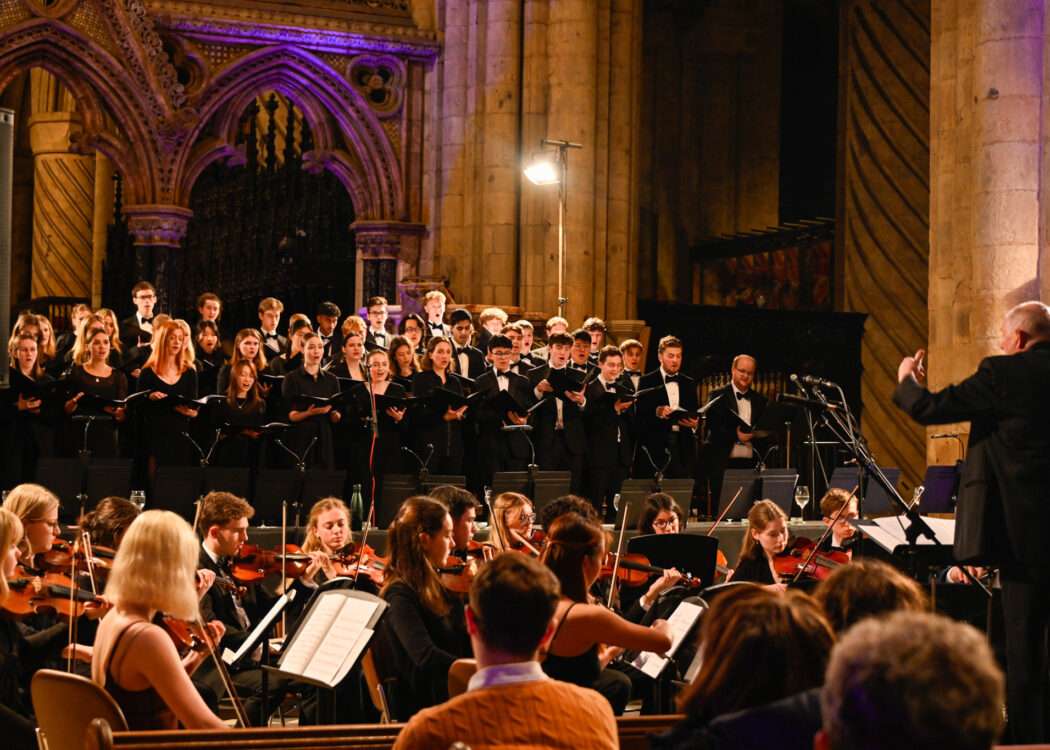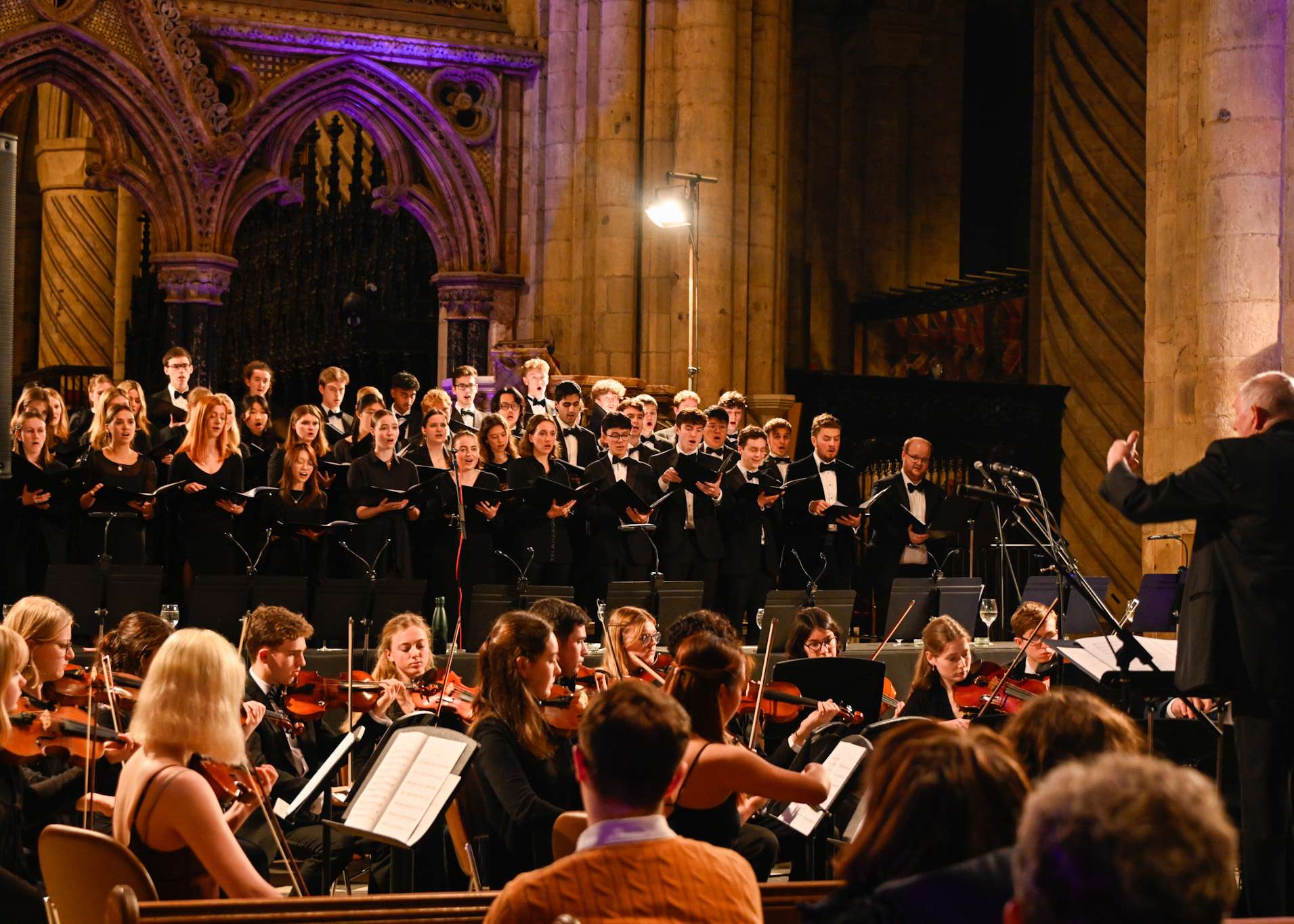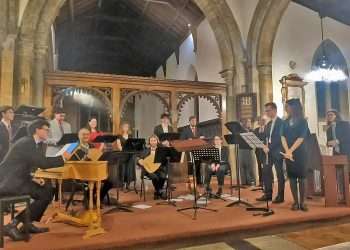In a short and neatly-constructed programme, Durham University Choral Society swept us up from the depths of the ocean to land in the heights of heaven, in a fitting tribute to their outgoing music director John Forsyth MBE.
I will admit that I was a little sceptical about the first piece on the programme – an arrangement for choir of Edward Elgar’s majestic song cycle Sea Pictures – assuming that it would be just a melodic line padded out with choral filler and I was delighted to be proved so wrong, to the extent that parts of this performance gave me goosebumps! Donald Fraser’s arrangement for choir and string orchestra convincingly re-imagined these songs in a way that reflected Elgar’s own choral writing and John Forsyth’s carefully balancing of his singers meant we could hear all of the interesting interplay between the lines.
The first two songs were gentle and intimately sung until Forsyth unleashed a glorious bloom in ‘Sabbath Morning at Sea’ – and, incidentally, demonstrating just how controlled the choir’s quiet singing had been up to that point. ‘Where Corals Lie’ went at a lively pace, the choir giving a real sense of excitement and mystery, enhanced by a beguiling legato in the softer parts.
The university’s Consort of Strings were excellent throughout – a few moments to mention were the lovely cellos under the gentle ‘goodnight’ at the end of ‘Sea Slumber Song’; the generous sincerity they brought to ‘Sabbath Morning at Sea’ and the thrilling tremolo at the start of ‘The Swimmer’. The choir took their lead from the strings in this last movement, with a real sense of energy and commitment to the text as they built to the song’s glorious end.

Safely installed now on dry land, DUCS turned to Gustav Holst’s settings of six folk songs. Without the support of the strings, there were one or two moments early on where the choir seemed slightly less secure, but this settled and again we enjoyed some excellent choral singing. Alto soloist Louisa Matthews was terrific in the exposed opening of ‘There was a tree’ – clear, graceful and relaxed. ‘The Song of the Blacksmith’ was excellently sung, full of ping and sparkle and I enjoyed the way that the choir laid out the full drama of ‘I love my love’ whilst also revelling in the song’s gorgeous melody. The basses provided a rollicking chorus of sailors for ‘Swansea Town’, whilst carefully staying within the bounds of good taste. These settings were written for much smaller forces and I was extremely impressed with the way that a choir of this size was able to pull off all the detail and tightness required to make them work.
Taking us into the skies, The Bluebird by Charles Villiers Stanford was poised and atmospheric with soprano soloist Holly Mackenzie exhibiting impressive control on her long, crystalline high notes, particularly the ending. The programme remained in the skies with Morten Lauridsen’s four Nocturnes, setting poems in French, Spanish and English and accompanied in an impressive arrangement for strings by second-year Durham undergraduate Maxwell Richards-Clarke. In my opinion, Laurisen’s choral writing doesn’t stand up against those earlier British craftsmen, but again these pieces were immaculately sung and polished. The choir’s French was excellent but I found their Spanish diction harder to follow in Lauridsen’s setting of an exquisitely tender poem by Pablo Neruda. (I’ll confess that I was paying more attention to the words than the music in this one!).
As members of the choir noted in their tributes to him before the last piece, John Forsyth has taken Durham University Choral Society from the depths of post-covid recovery to new and glorious heights. I have many happy memories of singing with DUCS in my own time as a student in the 90s so I’ve been delighted to see the choir thriving again and I hope that whoever takes over will be able to build on this. Ending the concert in the heavens with Ēriks Ešenvalds Stars was an entirely fitting and atmospheric close, and demonstrated again that ‘chamber’ works can, in the right hands, be extremely effective when sung by larger choirs.
Durham University Choral Society and Consort of Strings ‘From Sea to Sky’, Friday 17th January 2025, Durham Cathedral
Photos (c) Matthew Prior for DUCS, used with thanks









